Back to Page
Amazon PPC
Breaking The 10 Most Common Amazon PPC Myths
Breaking The 10 Most Common Amazon PPC Myths
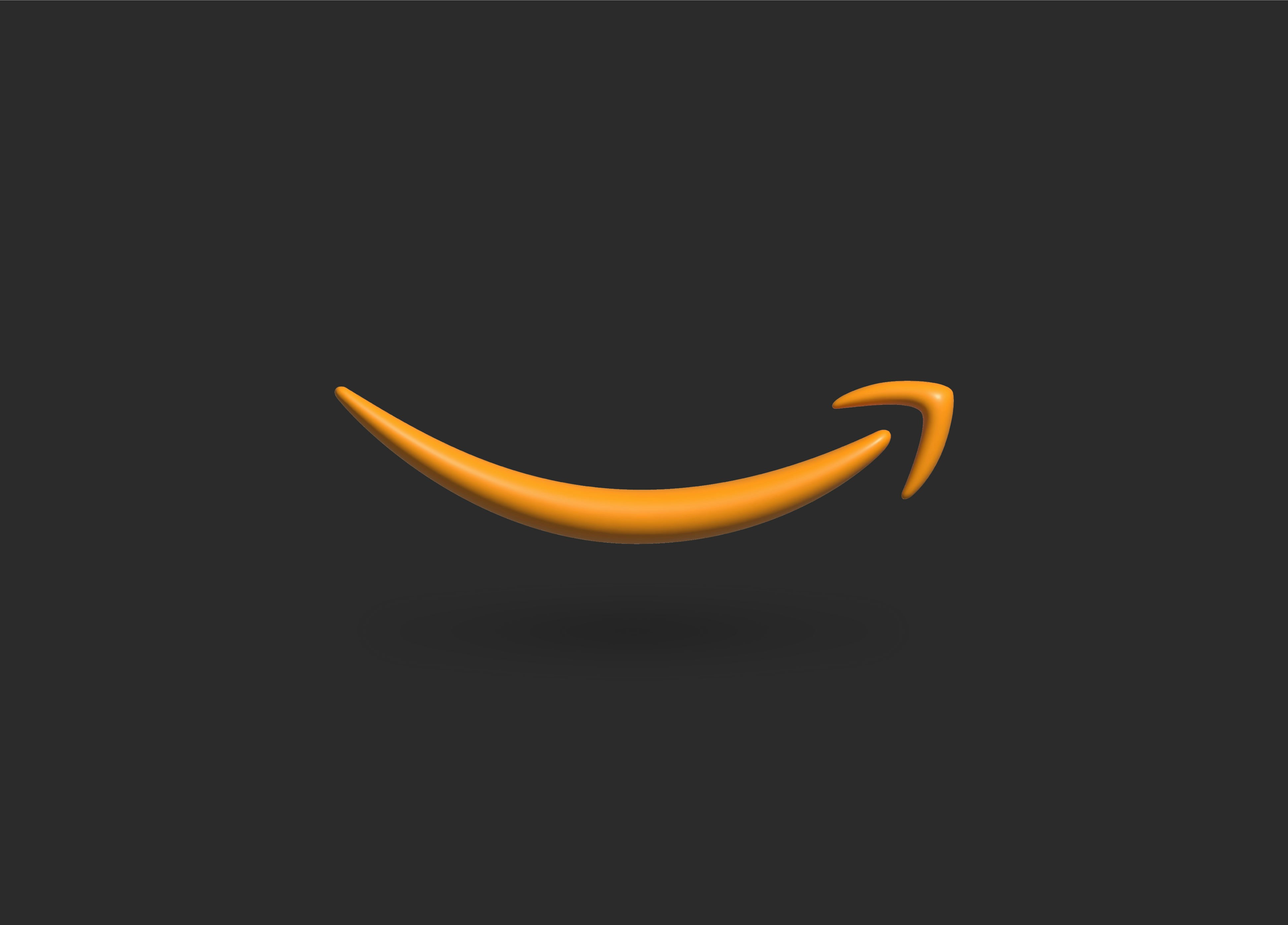

Back to Page
Amazon PPC
Breaking The 10 Most Common Amazon PPC Myths

One of the most misunderstood and misused tools on Amazon is Pay Per Click Ads. Every seller knows about it, every seller uses it, but only a handful know how to use it well. There are hundreds of misconceptions about PPC and these misconceptions grew to become myths. Sellers blindly follow them and when their campaigns don’t work, they wonder what went wrong. In this week’s blog post, I have revealed the ten most common myths that are gathered around Amazon PPC. Read, understand, and stay away from them.
Myth #1: PPC Is The Biggest Factor In Increasing Organic Ranking

Up until now, this was partly true. In Amazon’s old algorithm, A9 PPC was one of the most significant factors to increase the organic ranking for the main keyword. However, the updated algorithm A10 gives more importance to product relevancy and less weightage to sales driven by PPC. Yes, PPC is still relevant, but how it used to be. Amazon has finally understood that not all people buy products just because they keep on seeing them. So rather than advertising average products and giving them a coveted spot in the first line of search results, Amazon thinks that it would be best if the “most deserving and relevant” listing wins. Fact: PPC is (not) the biggest factor in increasing your organic ranking. Advertising should be a way to bring immediate hype and it should not be used as a permanent solution.
Myth #2: No. 1 Position Is The Most Profitable Position

Again, this is not entirely true. Being in the first position gives your ad the best visibility and traffic possible. But that doesn’t always mean better conversion. You might end up spending more than what you are earning. Resultantly the ACOS is going to be very high. Most of the shoppers have the habit of clicking on the products on the first line of the SERP, but that doesn’t always mean they will buy the product. If your advertising goal is to increase brand awareness, then being in the first position can be very helpful. But not otherwise. However, like most advertisers using PPC, if your goal is to increase conversion, you should be a little cautious about being in the first position.
Fact: Don’t always set our goals for the #1 position. Experiment and find out which position works best for you.
Myth #3: PPC Is A Set It & Forget It Thing

Select a product, add keywords, build campaigns, and then wait for it to work. PPC seems to be very easy, doesn’t it? No! Like every other marketing effort, if you want to make the most of every dollar spent on your campaigns, you MUST monitor and adjust your PPC campaigns every day. Ad positions change every day, search trends change frequently and if you fail to adjust your campaigns according to these changes, then you may waste your precious advertising budget with nothing to earn. Profitable PPC campaigns demand daily monitoring and optimization of KPIs, including spend, budget, clicks, ACOS, and sales. In short, PPC is a process, a continuous and ongoing process you need to deal with till the time you sell on Amazon.
Fact: PPC is not a set-it-and-forget-it thing; it can never be. The only way you can put your PPC campaigns on auto-pilot mode is by hiring expert PPC consultants.
Myth #4: PPC Prep Includes Only Thorough Keyword Research
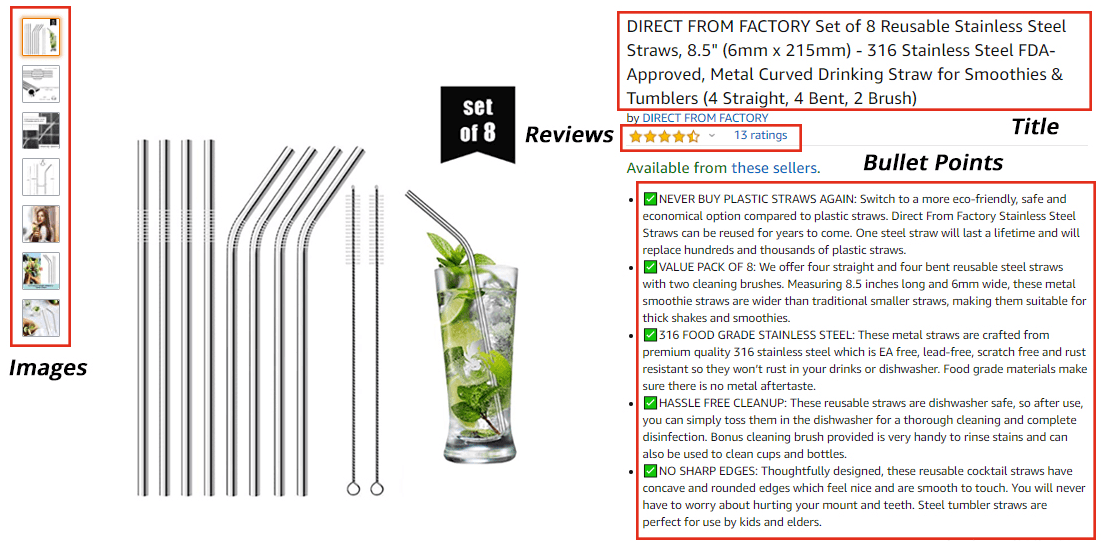
My PPC campaigns are jam-packed with the most profitable and high volume keywords; they are surely going to work. Well, sure, if your campaigns contain profitable keywords, they may bring loads and loads of traffic to your detail page, but that traffic is never going to convert into sales. So, only spend and no sales. When a shopper comes to your detail page and he is not fed with the information he needs to make a purchase, he will go away. As a result, the first and foremost step even before starting your PPC campaigns is to optimize your product content, create informative images, check whether your product has Buy Box or not, and make sure your product has gleaming five-star reviews. Bottom line: None of your PPC strategies and keyword research efforts are going to work unless and until your product detail page is retail-ready. Otherwise, the traffic you are bringing with the “great keyword research” is futile.
Fact: Before spending hundreds of dollars on PPC to bring traffic to your listing, invest in making your product detail page ready for traffic.
Myth #5: PPC Is Way Too Expensive

PPC is a bit expensive, but it can be tailored to fit your unique budget and needs. You may face loss in the beginning, maybe the cost of PPC is much more than your expectation, but you will have to be patient. Always keep a cap on your budget; this way, you can decrease the chances of overspending, unless you make changes in your budget. Another way to control your spending is by adjusting the bids regularly. If a particular keyword is eating up your budget, then you can pause the keyword or decrease its bid. PPC also allows you to target specific products and keywords to make your campaigns even more cost-efficient. So, you have complete control over your campaigns and their budget.
Fact: PPC is flexible and anyone with any budget can use it.
Myth #6: More Keywords = More Sales
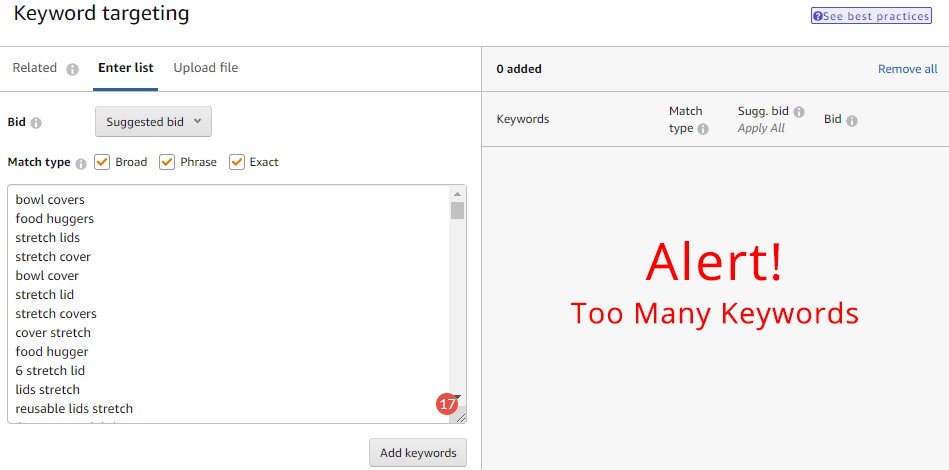
This is not at all true. Relevant keywords will bring you sales but not all keywords. Having more and more keywords may bring more impressions, clicks, and traffic, but that doesn’t always mean more sales. Your PPC Campaigns should be focused on conversions and not just impressions and traffic. Instead of overstuffing your PPC campaigns with all the keywords you have, filter them based on relevancy. Overstuffing will bring irrelevant traffic, burn your budget and you will end up getting an unsatisfactory ROI. Micro-manage the performance of your keywords and adjust the keyword bids daily. We find the most profitable keywords from top-notch tools like Merchant Words, Helium10, and Jungle Scout. Trust me; campaigns built with these keywords will bring much better results.
Fact: More keywords Relevant keywords will bring better conversion and more sales.
Myth #7: My Product Organically Ranks On Page #1 I Don’t Need PPC
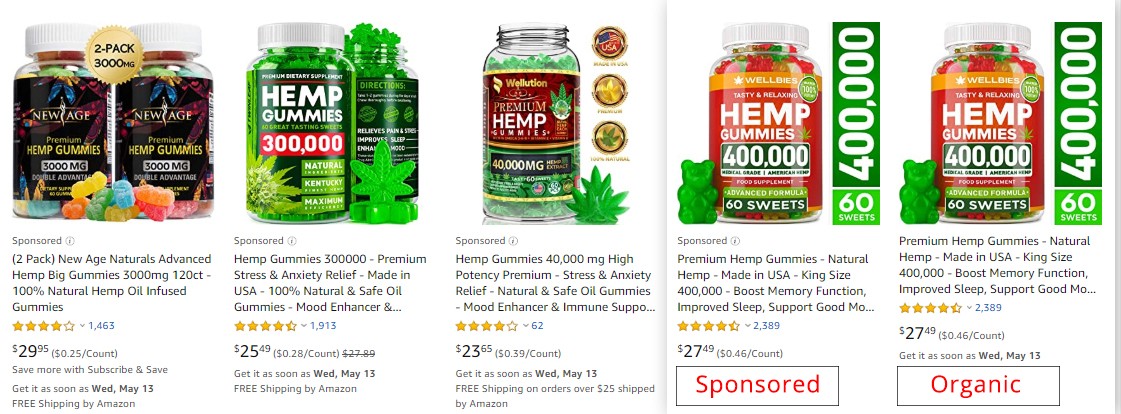
Having a higher organic ranking is great, but using PPC can help you double your results when it comes to keeping your product in the minds of the customers. There is a chunk of sellers who believe that PPC and organic efforts work against each other, but the reality is that they both work the best when combined. The increased visibility can increase brand awareness and traffic. Yes, we completely agree that free is better than paid, but the importance and benefits PPC can bring cannot be neglected. At the same time, advertisers must make sure their business does not rely completely on PPC.
Fact: Paid and organic efforts work best when they are combined. PPC can help widen audience exposure and help you to rank high for a broader range of keywords.
Myth #8: ACOS Determines The Profitability Of Campaigns
ACOS doesn’t tell the whole story, or instead, it doesn’t tell the real story. A maximum number of sellers use ACOS (PPC Spend/PPC Sales) to determine the profitability of their campaigns. But ACOS only reflects one side of the coin. When it comes to Amazon, PPC spend is directly linked to organic sales. If your PPC sales are higher than your organic sales, then it’s a warning bell for you. PPC should have a snowball effect. Slowly and gradually, it should lead to organic sales and brand awareness. You are seriously destroying the performance of your campaign if you are relying solely on your ACOS. You should also count your total ROAS (total organic sales/PPC spend) and TACOS (Advertising Spend / Total Revenue). TACOS determines organic sales generated through PPC efforts and ROAS will tell you the same story of how PPC affects your organic ranking. The point here is to make sure that your PPC sales should not be the main earning source of your business but a supplementary source.
Fact: ACOS is important, but it shouldn’t be your end-all metric. Do take into consideration other parameters such as TACOS and total ROAS.
Myth #9: All About Bid Amount
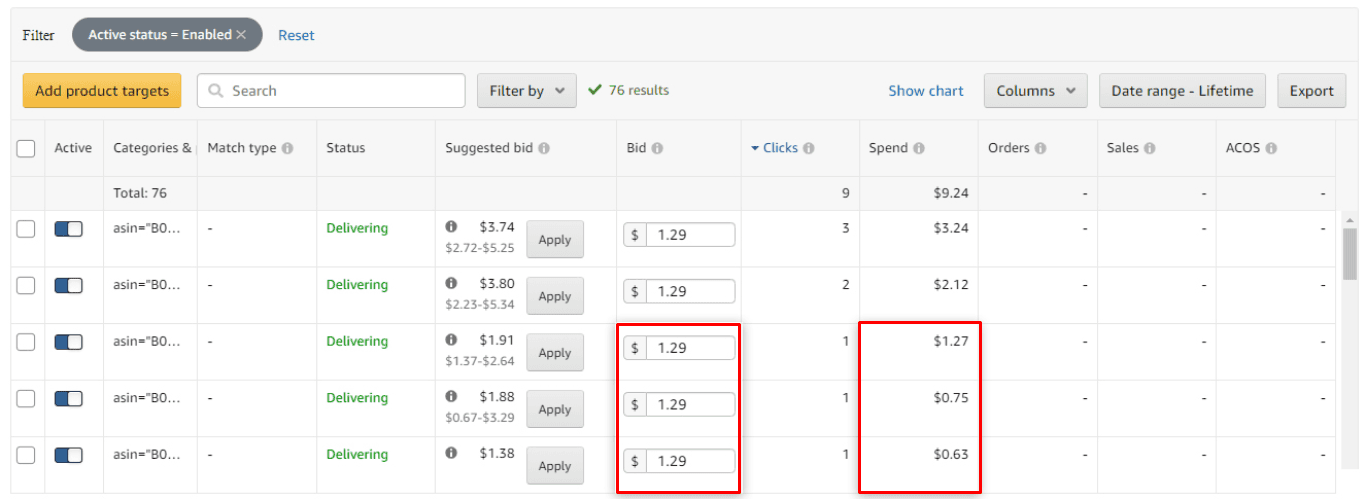
If the bid is set at $1, it’s not always necessary that the whole amount will be deducted when someone clicks on the ad. The advertising bid determines the maximum amount you are willing to pay. If your bid is competitive enough your ad is displayed in the search results and the customer clicks on the ad, then you will have to pay the amount, which is a little bit higher than the amount set by the first runner-up. So it’s always better to set a somewhat higher bid on the relevant and essential keywords. This way, you can get the coveted position in the search result pages and maybe you won’t even have to pay that much. It is rightly said that when it comes to Amazon PPC, don’t play checkers; play chess. After all, PPC is a game and it’s okay to take some risk.
Fact: Higher bids don’t always mean a higher spend.
Myth #10: I Can Do PPC All By My Myself
PPC demands time, expertise, and effort. As mentioned above, it is not a set-it-and-forget-it thing. It needs everyday nurturing and fine-tuning to become profitable. If you manage everything in your Amazon account by yourself, you might not be able to do anything perfectly. This is why smart sellers outsource PPC Management to PPC Experts from experienced Amazon Agency like eStore Factory. Just give us your advertising budget, sales target ,and target ACOS. Our PPC management services include everything from keyword research to campaign setup and management at a micro-level.Fact: Don’t be the insufferable do-it-all. Let certified Amazon Experts handle your PPC campaigns and see your sales skyrocket.
One of the most misunderstood and misused tools on Amazon is Pay Per Click Ads. Every seller knows about it, every seller uses it, but only a handful know how to use it well. There are hundreds of misconceptions about PPC and these misconceptions grew to become myths. Sellers blindly follow them and when their campaigns don’t work, they wonder what went wrong. In this week’s blog post, I have revealed the ten most common myths that are gathered around Amazon PPC. Read, understand, and stay away from them.
Myth #1: PPC Is The Biggest Factor In Increasing Organic Ranking

Up until now, this was partly true. In Amazon’s old algorithm, A9 PPC was one of the most significant factors to increase the organic ranking for the main keyword. However, the updated algorithm A10 gives more importance to product relevancy and less weightage to sales driven by PPC. Yes, PPC is still relevant, but how it used to be. Amazon has finally understood that not all people buy products just because they keep on seeing them. So rather than advertising average products and giving them a coveted spot in the first line of search results, Amazon thinks that it would be best if the “most deserving and relevant” listing wins. Fact: PPC is (not) the biggest factor in increasing your organic ranking. Advertising should be a way to bring immediate hype and it should not be used as a permanent solution.
Myth #2: No. 1 Position Is The Most Profitable Position

Again, this is not entirely true. Being in the first position gives your ad the best visibility and traffic possible. But that doesn’t always mean better conversion. You might end up spending more than what you are earning. Resultantly the ACOS is going to be very high. Most of the shoppers have the habit of clicking on the products on the first line of the SERP, but that doesn’t always mean they will buy the product. If your advertising goal is to increase brand awareness, then being in the first position can be very helpful. But not otherwise. However, like most advertisers using PPC, if your goal is to increase conversion, you should be a little cautious about being in the first position.
Fact: Don’t always set our goals for the #1 position. Experiment and find out which position works best for you.
Myth #3: PPC Is A Set It & Forget It Thing

Select a product, add keywords, build campaigns, and then wait for it to work. PPC seems to be very easy, doesn’t it? No! Like every other marketing effort, if you want to make the most of every dollar spent on your campaigns, you MUST monitor and adjust your PPC campaigns every day. Ad positions change every day, search trends change frequently and if you fail to adjust your campaigns according to these changes, then you may waste your precious advertising budget with nothing to earn. Profitable PPC campaigns demand daily monitoring and optimization of KPIs, including spend, budget, clicks, ACOS, and sales. In short, PPC is a process, a continuous and ongoing process you need to deal with till the time you sell on Amazon.
Fact: PPC is not a set-it-and-forget-it thing; it can never be. The only way you can put your PPC campaigns on auto-pilot mode is by hiring expert PPC consultants.
Myth #4: PPC Prep Includes Only Thorough Keyword Research

My PPC campaigns are jam-packed with the most profitable and high volume keywords; they are surely going to work. Well, sure, if your campaigns contain profitable keywords, they may bring loads and loads of traffic to your detail page, but that traffic is never going to convert into sales. So, only spend and no sales. When a shopper comes to your detail page and he is not fed with the information he needs to make a purchase, he will go away. As a result, the first and foremost step even before starting your PPC campaigns is to optimize your product content, create informative images, check whether your product has Buy Box or not, and make sure your product has gleaming five-star reviews. Bottom line: None of your PPC strategies and keyword research efforts are going to work unless and until your product detail page is retail-ready. Otherwise, the traffic you are bringing with the “great keyword research” is futile.
Fact: Before spending hundreds of dollars on PPC to bring traffic to your listing, invest in making your product detail page ready for traffic.
Myth #5: PPC Is Way Too Expensive

PPC is a bit expensive, but it can be tailored to fit your unique budget and needs. You may face loss in the beginning, maybe the cost of PPC is much more than your expectation, but you will have to be patient. Always keep a cap on your budget; this way, you can decrease the chances of overspending, unless you make changes in your budget. Another way to control your spending is by adjusting the bids regularly. If a particular keyword is eating up your budget, then you can pause the keyword or decrease its bid. PPC also allows you to target specific products and keywords to make your campaigns even more cost-efficient. So, you have complete control over your campaigns and their budget.
Fact: PPC is flexible and anyone with any budget can use it.
Myth #6: More Keywords = More Sales

This is not at all true. Relevant keywords will bring you sales but not all keywords. Having more and more keywords may bring more impressions, clicks, and traffic, but that doesn’t always mean more sales. Your PPC Campaigns should be focused on conversions and not just impressions and traffic. Instead of overstuffing your PPC campaigns with all the keywords you have, filter them based on relevancy. Overstuffing will bring irrelevant traffic, burn your budget and you will end up getting an unsatisfactory ROI. Micro-manage the performance of your keywords and adjust the keyword bids daily. We find the most profitable keywords from top-notch tools like Merchant Words, Helium10, and Jungle Scout. Trust me; campaigns built with these keywords will bring much better results.
Fact: More keywords Relevant keywords will bring better conversion and more sales.
Myth #7: My Product Organically Ranks On Page #1 I Don’t Need PPC

Having a higher organic ranking is great, but using PPC can help you double your results when it comes to keeping your product in the minds of the customers. There is a chunk of sellers who believe that PPC and organic efforts work against each other, but the reality is that they both work the best when combined. The increased visibility can increase brand awareness and traffic. Yes, we completely agree that free is better than paid, but the importance and benefits PPC can bring cannot be neglected. At the same time, advertisers must make sure their business does not rely completely on PPC.
Fact: Paid and organic efforts work best when they are combined. PPC can help widen audience exposure and help you to rank high for a broader range of keywords.
Myth #8: ACOS Determines The Profitability Of Campaigns
ACOS doesn’t tell the whole story, or instead, it doesn’t tell the real story. A maximum number of sellers use ACOS (PPC Spend/PPC Sales) to determine the profitability of their campaigns. But ACOS only reflects one side of the coin. When it comes to Amazon, PPC spend is directly linked to organic sales. If your PPC sales are higher than your organic sales, then it’s a warning bell for you. PPC should have a snowball effect. Slowly and gradually, it should lead to organic sales and brand awareness. You are seriously destroying the performance of your campaign if you are relying solely on your ACOS. You should also count your total ROAS (total organic sales/PPC spend) and TACOS (Advertising Spend / Total Revenue). TACOS determines organic sales generated through PPC efforts and ROAS will tell you the same story of how PPC affects your organic ranking. The point here is to make sure that your PPC sales should not be the main earning source of your business but a supplementary source.
Fact: ACOS is important, but it shouldn’t be your end-all metric. Do take into consideration other parameters such as TACOS and total ROAS.
Myth #9: All About Bid Amount

If the bid is set at $1, it’s not always necessary that the whole amount will be deducted when someone clicks on the ad. The advertising bid determines the maximum amount you are willing to pay. If your bid is competitive enough your ad is displayed in the search results and the customer clicks on the ad, then you will have to pay the amount, which is a little bit higher than the amount set by the first runner-up. So it’s always better to set a somewhat higher bid on the relevant and essential keywords. This way, you can get the coveted position in the search result pages and maybe you won’t even have to pay that much. It is rightly said that when it comes to Amazon PPC, don’t play checkers; play chess. After all, PPC is a game and it’s okay to take some risk.
Fact: Higher bids don’t always mean a higher spend.
Myth #10: I Can Do PPC All By My Myself
PPC demands time, expertise, and effort. As mentioned above, it is not a set-it-and-forget-it thing. It needs everyday nurturing and fine-tuning to become profitable. If you manage everything in your Amazon account by yourself, you might not be able to do anything perfectly. This is why smart sellers outsource PPC Management to PPC Experts from experienced Amazon Agency like eStore Factory. Just give us your advertising budget, sales target ,and target ACOS. Our PPC management services include everything from keyword research to campaign setup and management at a micro-level.Fact: Don’t be the insufferable do-it-all. Let certified Amazon Experts handle your PPC campaigns and see your sales skyrocket.
One of the most misunderstood and misused tools on Amazon is Pay Per Click Ads. Every seller knows about it, every seller uses it, but only a handful know how to use it well. There are hundreds of misconceptions about PPC and these misconceptions grew to become myths. Sellers blindly follow them and when their campaigns don’t work, they wonder what went wrong. In this week’s blog post, I have revealed the ten most common myths that are gathered around Amazon PPC. Read, understand, and stay away from them.
Myth #1: PPC Is The Biggest Factor In Increasing Organic Ranking

Up until now, this was partly true. In Amazon’s old algorithm, A9 PPC was one of the most significant factors to increase the organic ranking for the main keyword. However, the updated algorithm A10 gives more importance to product relevancy and less weightage to sales driven by PPC. Yes, PPC is still relevant, but how it used to be. Amazon has finally understood that not all people buy products just because they keep on seeing them. So rather than advertising average products and giving them a coveted spot in the first line of search results, Amazon thinks that it would be best if the “most deserving and relevant” listing wins. Fact: PPC is (not) the biggest factor in increasing your organic ranking. Advertising should be a way to bring immediate hype and it should not be used as a permanent solution.
Myth #2: No. 1 Position Is The Most Profitable Position

Again, this is not entirely true. Being in the first position gives your ad the best visibility and traffic possible. But that doesn’t always mean better conversion. You might end up spending more than what you are earning. Resultantly the ACOS is going to be very high. Most of the shoppers have the habit of clicking on the products on the first line of the SERP, but that doesn’t always mean they will buy the product. If your advertising goal is to increase brand awareness, then being in the first position can be very helpful. But not otherwise. However, like most advertisers using PPC, if your goal is to increase conversion, you should be a little cautious about being in the first position.
Fact: Don’t always set our goals for the #1 position. Experiment and find out which position works best for you.
Myth #3: PPC Is A Set It & Forget It Thing

Select a product, add keywords, build campaigns, and then wait for it to work. PPC seems to be very easy, doesn’t it? No! Like every other marketing effort, if you want to make the most of every dollar spent on your campaigns, you MUST monitor and adjust your PPC campaigns every day. Ad positions change every day, search trends change frequently and if you fail to adjust your campaigns according to these changes, then you may waste your precious advertising budget with nothing to earn. Profitable PPC campaigns demand daily monitoring and optimization of KPIs, including spend, budget, clicks, ACOS, and sales. In short, PPC is a process, a continuous and ongoing process you need to deal with till the time you sell on Amazon.
Fact: PPC is not a set-it-and-forget-it thing; it can never be. The only way you can put your PPC campaigns on auto-pilot mode is by hiring expert PPC consultants.
Myth #4: PPC Prep Includes Only Thorough Keyword Research

My PPC campaigns are jam-packed with the most profitable and high volume keywords; they are surely going to work. Well, sure, if your campaigns contain profitable keywords, they may bring loads and loads of traffic to your detail page, but that traffic is never going to convert into sales. So, only spend and no sales. When a shopper comes to your detail page and he is not fed with the information he needs to make a purchase, he will go away. As a result, the first and foremost step even before starting your PPC campaigns is to optimize your product content, create informative images, check whether your product has Buy Box or not, and make sure your product has gleaming five-star reviews. Bottom line: None of your PPC strategies and keyword research efforts are going to work unless and until your product detail page is retail-ready. Otherwise, the traffic you are bringing with the “great keyword research” is futile.
Fact: Before spending hundreds of dollars on PPC to bring traffic to your listing, invest in making your product detail page ready for traffic.
Myth #5: PPC Is Way Too Expensive

PPC is a bit expensive, but it can be tailored to fit your unique budget and needs. You may face loss in the beginning, maybe the cost of PPC is much more than your expectation, but you will have to be patient. Always keep a cap on your budget; this way, you can decrease the chances of overspending, unless you make changes in your budget. Another way to control your spending is by adjusting the bids regularly. If a particular keyword is eating up your budget, then you can pause the keyword or decrease its bid. PPC also allows you to target specific products and keywords to make your campaigns even more cost-efficient. So, you have complete control over your campaigns and their budget.
Fact: PPC is flexible and anyone with any budget can use it.
Myth #6: More Keywords = More Sales

This is not at all true. Relevant keywords will bring you sales but not all keywords. Having more and more keywords may bring more impressions, clicks, and traffic, but that doesn’t always mean more sales. Your PPC Campaigns should be focused on conversions and not just impressions and traffic. Instead of overstuffing your PPC campaigns with all the keywords you have, filter them based on relevancy. Overstuffing will bring irrelevant traffic, burn your budget and you will end up getting an unsatisfactory ROI. Micro-manage the performance of your keywords and adjust the keyword bids daily. We find the most profitable keywords from top-notch tools like Merchant Words, Helium10, and Jungle Scout. Trust me; campaigns built with these keywords will bring much better results.
Fact: More keywords Relevant keywords will bring better conversion and more sales.
Myth #7: My Product Organically Ranks On Page #1 I Don’t Need PPC

Having a higher organic ranking is great, but using PPC can help you double your results when it comes to keeping your product in the minds of the customers. There is a chunk of sellers who believe that PPC and organic efforts work against each other, but the reality is that they both work the best when combined. The increased visibility can increase brand awareness and traffic. Yes, we completely agree that free is better than paid, but the importance and benefits PPC can bring cannot be neglected. At the same time, advertisers must make sure their business does not rely completely on PPC.
Fact: Paid and organic efforts work best when they are combined. PPC can help widen audience exposure and help you to rank high for a broader range of keywords.
Myth #8: ACOS Determines The Profitability Of Campaigns
ACOS doesn’t tell the whole story, or instead, it doesn’t tell the real story. A maximum number of sellers use ACOS (PPC Spend/PPC Sales) to determine the profitability of their campaigns. But ACOS only reflects one side of the coin. When it comes to Amazon, PPC spend is directly linked to organic sales. If your PPC sales are higher than your organic sales, then it’s a warning bell for you. PPC should have a snowball effect. Slowly and gradually, it should lead to organic sales and brand awareness. You are seriously destroying the performance of your campaign if you are relying solely on your ACOS. You should also count your total ROAS (total organic sales/PPC spend) and TACOS (Advertising Spend / Total Revenue). TACOS determines organic sales generated through PPC efforts and ROAS will tell you the same story of how PPC affects your organic ranking. The point here is to make sure that your PPC sales should not be the main earning source of your business but a supplementary source.
Fact: ACOS is important, but it shouldn’t be your end-all metric. Do take into consideration other parameters such as TACOS and total ROAS.
Myth #9: All About Bid Amount

If the bid is set at $1, it’s not always necessary that the whole amount will be deducted when someone clicks on the ad. The advertising bid determines the maximum amount you are willing to pay. If your bid is competitive enough your ad is displayed in the search results and the customer clicks on the ad, then you will have to pay the amount, which is a little bit higher than the amount set by the first runner-up. So it’s always better to set a somewhat higher bid on the relevant and essential keywords. This way, you can get the coveted position in the search result pages and maybe you won’t even have to pay that much. It is rightly said that when it comes to Amazon PPC, don’t play checkers; play chess. After all, PPC is a game and it’s okay to take some risk.
Fact: Higher bids don’t always mean a higher spend.
Myth #10: I Can Do PPC All By My Myself
PPC demands time, expertise, and effort. As mentioned above, it is not a set-it-and-forget-it thing. It needs everyday nurturing and fine-tuning to become profitable. If you manage everything in your Amazon account by yourself, you might not be able to do anything perfectly. This is why smart sellers outsource PPC Management to PPC Experts from experienced Amazon Agency like eStore Factory. Just give us your advertising budget, sales target ,and target ACOS. Our PPC management services include everything from keyword research to campaign setup and management at a micro-level.Fact: Don’t be the insufferable do-it-all. Let certified Amazon Experts handle your PPC campaigns and see your sales skyrocket.






